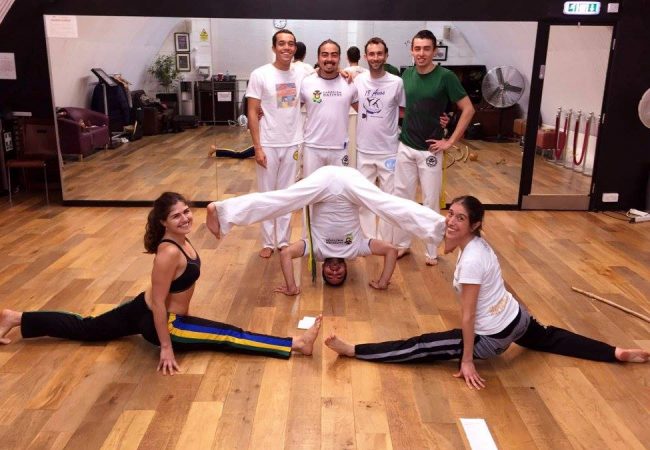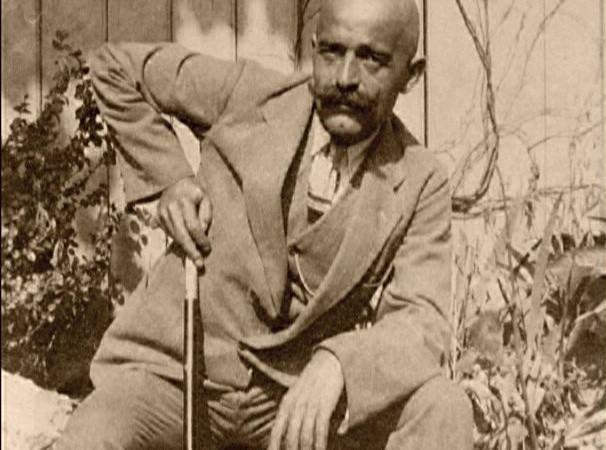There are some books where half of it is gobbledegook,…

What’s wrong with doing things for fun?
Image – Tom Church doing Capoeira (top left)
I recently made a list of things I would love to try for two weeks. They included:
- Acro yoga
- Krav Maga
- Language learning
- Meditation
- Brain optimised diet
- Off-the-grid hunting and camping
- Cooking
- Building a log cabin
- DNA sequencing (to find what my genetics are good and bad for)
- Building a Warka water system
- Caffeine free
- Global product launch
- Explore the UK: Peak District, Ireland, Scotland, Harris Isles, Jersey, Wales
- Learn the History of Britain – Lords and Lady’s
- Collecting plant species (and learning how to draw them)
I made this list after reading an article about a mind hack that completely changes the way you think.
This is the old you:
You have an idea and set yourself a goal. For example, to learn a language. You then think of all the things you need to do to achieve that goal. You need to buy books. A language course. Two-hour lessons in the evening. Month long trips to the country. Vocabulary lists. Apps. Constant practice. You think of all these things and more. It seems daunting now. You just don’t have the time.
This is the new you with the mind hack:
You have an idea. For example, to learn a language. You ask yourself, what’s the first step? You stop yourself thinking of anything else. Only the first step. Then you take it. You download DuoLingo and start to learn a language.
What’s the difference?
The difference is momentum. Instead of building a mountain to climb upwards you start at the top and work your way down. You let gravity do the work. Find the first step and take it.
Back to the list.
I made this list of goals and said I would try them for two weeks. For most of the goals all I have to do is turn up. For example, I’ve booked a 3-hour induction class at London Krav Maga. That’s the first step.
Then I found myself asking a question. It’s a question I have always asked but never truthfully answered:
Why?
Why do these things? What do I hope to achieve? What is their purpose?
I wrote:
- To find my strengths and weaknesses
- To immerse myself and learn the core skills as fast as possible
- To improve
None of these reasons were true. They couldn’t be true. I was looking for a purpose retrospective to the decision to do them.
The truth was simple and I felt guilty for thinking it: I wanted to do these things for fun.
The Principle of Fun
Fun is a purpose and a reason we don’t hear of very often. Most books, articles, blogs and “experts” give more concrete reasons. Principally money.
Have you ever done something good, or had an idea, only to share it with friends who immediately discuss how you could turn it into a money-making business?
This happens to me all the time. This blog, for example. When I tell people I write a blog they immediately ask how I’m trying to make money from it. The truth is I’m not. I write it for fun.
Fun as a principle needs to be brought into the forefront of accepted motives. We should encourage it, not shun it.
It’s OK to try something new and dump it. That doesn’t mean you’re a failure. It’s OK to experiment and play. That doesn’t mean you’re not “serious”. And it’s OK to do something for fun. That doesn’t mean it’s not worth doing.
Whether or not the action leads to anything doesn’t matter.
The Future Narrative Fallacy
Nassim Taleb, author of The Black Swan, describes how we are susceptible to a ‘narrative fallacy’. That means concocting a story about ourselves to make sense of the past.
In truth, most of our lives are driven by chance encounters and randomness. For example, I got my first job at the #1 UK communications agency because I heard about it from a customer getting acupuncture at the health practice I worked in at the time.
Think of how you met your partner or ex-partner: it’s all riddled with randomness.
Yet we don’t like to think of it that way. Instead we make a story connecting all the dots.
With goals, aspirations, and self-development we can also fall foul of a future narrative fallacy. We try to line up the dots going forward: “If I can just get a promotion then I’ll have more time and money…”
Bollocks. The dots are scattered and The Principle of Fun is a way to create more dots. It’s as if you’re trying to culture opportunity. A shot-gun approach to opening doors.
Actions
- Make a list of things you’d like to do for fun (write them here in the comments if you’d like some accountability)
- What’s the first step to do one of them?
- Don’t think any more. Just the first step.
- Go and do that first step, for example, book that class.
- Let me know what happens next.
Next Post: 10 Tips to Write a Book in Less than 90 days
Previous Post: How martial arts can help you increase creativity



